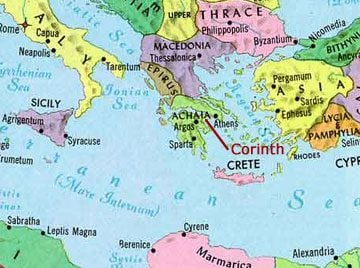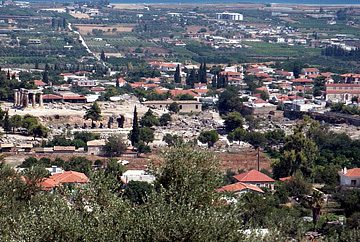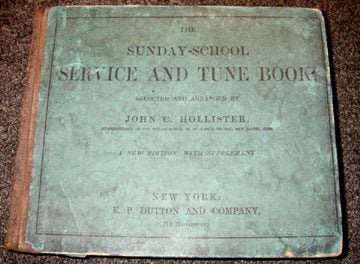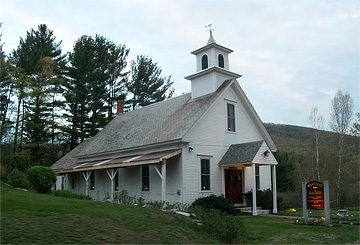The Church as an Alternative Community, Part 2
In yesterday’s post, I explained how the early Christian use of the work ekklesia for their gathering suggested that the church was an alternative, even a subversive community. By subversive, I do not mean that Christians were plotting to overthrow the local ekklesia (governing body of the city) by political or military means. Rather, the early Christian use of ekklesia did, in some sense, undermine the social order of the Greco-Roman city, with its ekklesiai (plural of ekklesia, town meeting-like gatherings to do city business). The Christian ekklesia was meant to be an alternative society, a society of a radically different order with radically different values. It was a thumbnail sketch of the kingdom of God.
So, for example, in the ekklesia of God, Jews and Gentiles, so often separated in Roman society, shared life together as brothers and sisters. Slaves could also be full participants in the Christian gatherings, enjoying equality in Christ with non-slaves, even with their masters. Women could actively participate in the gatherings just as long as they didn’t engage in the scandalous behavior of the pagan cults. The theological truth that in Christ “there is no longer Jew or Greek, there is no longer slave or free, there is no longer male and female” was lived out in the Christian assemblies (Galatians 3:28). Thus, they were a kind of alternative society, one that implicitly rejected the domineering, separatistic, and elitist values of the Roman world.
Could it be said that the church in America today is also an alternative society? Perhaps, in some places and at some times, but I fear these are the exceptions to the rule. The church in our culture tends to play a very different role than what was once envisioned by Paul and the earliest Christians. On the one hand, we often reflect the fallen values of our society rather than the holy values of God’s kingdom. For example, put a church in the middle of a materialistic culture and, odds are, the church will be materialistic too. On the other hand, we have often been satisfied to play a comfortable religious role in society, offering a spiritual narcotic to soothe jangled nerves rather than an alternative way of living under God’s rule. We don’t want to rock the social boat. We want to find our niche in society so that society will smile upon us. Of course there are some Christians, who, like the Amish, withdraw from society in order to live as God’s chosen people. But they hardly reflect the reality of what the Christian ekklesia ought to be in the world.
Christians who are active in politics, whether on the left or right side of the political spectrum, may see themselves as the rightful heirs of the early Christian ekklesia. Indeed, their desire for God to make a difference in this world does reflect what we see in the New Testament understanding of church. But nowhere in Scripture do we get the idea that the role of the ekklesia is to directly influence (or replace) the civic ekklesia. Nowhere is it suggested that the Christian assembly should major in “speaking truth to power,” other than the truth of the Gospel of Jesus Christ. Rather, the power of the ekklesia to change society comes from the authenticity of its corporate life, which is a manifestation of the presence and power of the Holy Spirit. In the New Testament, the ekklesia offers, not political advice to the members of the civic ekklesia, but, instead, a whole new way of living, one that reflects the kingdom of God rather than the empire of Caesar.
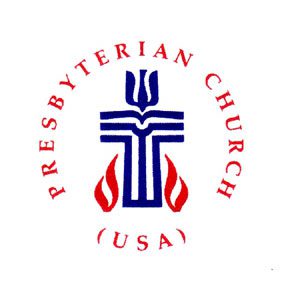
Let me apply what I’m saying to my own denomination. If you’re not part of the PC(USA), I expect you’ll find things here that are relevant to your denomination and/or local church.
I come from a denomination that has often seen itself as a counselor to the federal government and other leaders. We pass motions and write position papers, recommending to our leaders what courses of action they should take on a variety of issues. There is a sad irony in all of this, because, on the one hand, I don’t think many of our national leaders care one bit about what we recommend. On the other hand, our efforts to “speak truth to power” often end up dividing us and impoverishing our own fellowship. The very thing that should be making a difference in society – our life together as an alternative community – is hampered by our misdirected efforts to make a difference in society through the ministry of pronouncements. How I wish we’d stop trying to recommend to our government how it should act and start, instead, trying harder to get our own act together.
What would this mean, in practice, for my denomination?
• It means we would care much less about the proceedings of our national assemblies (ekklesiai) and pay much more attention to the regular, tangible, essential gatherings of our local ekklesiai.
• It means that our denominational bodies would put much more energy into nurturing healthy ekklesiai than we do today. We’d see our denominational purpose primarily in terms of planting and nurturing churches through the Gospel.
• It means we would be open to new denominational structures that support our mission, rather than holding on to the structures of the past that guarantee our power but weaken our common life and mission.
• It means that we would strive harder to be an alternative society through our ekklesiai, one that truly reflects the gospel of Jesus Christ, one that shines as a light into our dark world.
• It means that we would see our local gatherings as essential, not only to our congregational life, but also to the health of our cities.
• It means we would care more about doing God’s justice, and less about talking about justice in ways that divide and weaken our churches, thus enfeebling our efforts to do justice.
• It means that our congregations would embrace our identity as “missional churches,” fellowships sent by God to proclaim and live out the reality of his kingdom. We’d be less committed to our own self-preservation and more committed to offering our neighbors the good news of Christ, both in word and in our shared life together. (For more on what it would mean for our churches to be mission, see my essay, The Mission of God and the Missional Church.)
I’m speaking about my denomination here as an example. What I have just said about the PC(USA) would be relevant to other denominations, and even to non-denominational bodies. I find it fascinating that many so-called independent and non-denominational churches today are becoming “multi-site” churches. The distance between “multi-site” and “denomination” is really very small.


